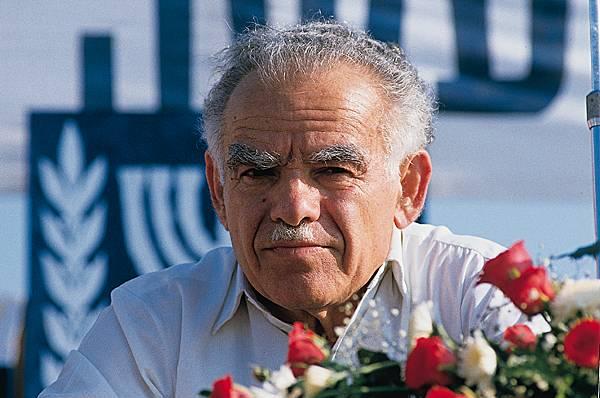IN THE MEDIA
Obituary: Yitzhak Shamir 1915-2012
July 6, 2012 | Colin Rubenstein

Colin Rubenstein
Australian Jewish News – 6 July 2012
The passing of former Israeli Prime Minister Yitzhak Shamir, aged 96, marks the departure of the last of the founding generation of Jewish leaders who devoted themselves to establishing, nurturing and securing a flourishing Jewish state.
Steadfast, modest, dour, lacking the charisma, wealth and powerful friends of some of Israel’s later premiers, he was in some ways the antithesis of a politician. He played a straight bat in his single-minded goal of serving the security and welfare interests of the Jewish state as he saw them, and became one of Israel’s longest serving prime ministers.
As a leader of Lehi, the most controversial of Israel’s pre-state underground groups, Shamir stood alienated from the consensus of the Yishuv. To this day, the group’s morally problematic tactics, such as the assassinations of Lord Moyne, the British Minister of State for the Middle East, and United Nations envoy Count Folke Bernadotte, are rejected by most Zionists.
But Shamir’s tenure with the Mossad under Labor governments showed his readiness to work alongside anyone in his quest to serve the Jewish people and the respect and trust that he enjoyed from rivals.
These factors would again become apparent following the 1984 elections, when the Likud’s Shamir, and Labor’s Shimon Peres agreed to rotate the prime ministership in a national unity government. This unlikely partnership came at a momentous time in Israel’s history, presiding over the withdrawal of Israeli troops in Lebanon to a security zone in 1985 and the successful implementation that same year of an economic stabilisation plan to curb triple-digit inflation that had marked a low-point for Israel’s economy.
Shamir’s appointment in 1991 of Jacob Frenkel as Governor of the Bank of Israel laid the foundation for the exponential growth the Israeli economy has experienced over the last two decades.
He was an opponent of territorial concessions, though the focus in much of the coverage of his passing on his rejection of Palestinian statehood is anachronistic – he served at a time when all significant Israeli political leaders rejected this option, looking to either autonomy, as suggested by Camp David, or Jordan as the answer to Palestinian aspirations. Yet Shamir’s attendance at the 1991 Madrid Peace Conference signalled a readiness to make overtures for peace – and Madrid ultimately paved the way for bilateral and multilateral talks and in short order contributed to a climate which witnessed the Oslo peace process.
Similarly, his fortitude earlier that year in resisting internal pressure to retaliate during a five-week period of SCUD missile attacks on Israel by Iraq during the First Gulf War showed true statesmanship.
Perhaps Shamir’s greatest contribution to the State of Israel was in Aliyah. Shamir was heavily involved in the Operation Moses (1984) and Solomon (1991) campaigns, which together brought over 22,000 Ethiopian Jews to Israel. Moreover, he successfully convinced the US to change its immigration policies enabling most émigrés from the former Soviet Union to find their way to Israel, post-1990.
The successful absorption of over one million ex-Soviet Jews, which began on Shamir’s watch, is indeed a fitting epitaph for Yitzhak Shamir – a committed and courageous Israeli leader with a remarkable record whose passing closes an important chapter in the country’s history.
Tags: Israel





